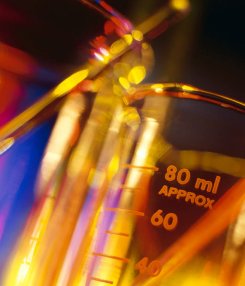
New experimental findings reported last week could improve the survival and quality of life for men suffering from prostate cancer. Sam Denmeade, from John Hopkins University, reported that he and his research team had developed a protoxin, named PRX302, which appears to target and kill prostate cancer cells specifically. The new treatment is currently being tested in a phase I clinical trial. "This represents a different kind of 'targeted' therapy, in that it seeks to use a protein made by the cancer to destroy itself," said Denmeade.
PRX302 was created by modifying an inactive molecule - proaerolysin (PA) - that is made by the cancer. It is activated by prostate-specific antigen (PSA) - a protein made in higher than normal levels by prostate cancer.
Tests in animals revealed that when PRX302 was injected into cancerous prostate tissue, it had a significant effect. "In the lab, PRX302 produced significant and often complete regression of the prostate cancer. Our observations suggest that injections into the prostate of this engineered, PSA-activated protoxin might have potential in treating men with locally recurrent or advanced prostate cancer," said Denmeade. "A phase I clinical trial is in progress now for men with locally recurrent prostate cancer after definitive radiation therapy."
Currently, the therapy involves injecting the protoxin directly into the prostate. "As such, its application is limited to men with recurrent disease after radiation who still have prostates. If it were to work very well it might be used earlier, in combination with other treatments, most likely radiation," explained Denmeade.
Based on material from the European Organization for Research and Treatment of Cancer





